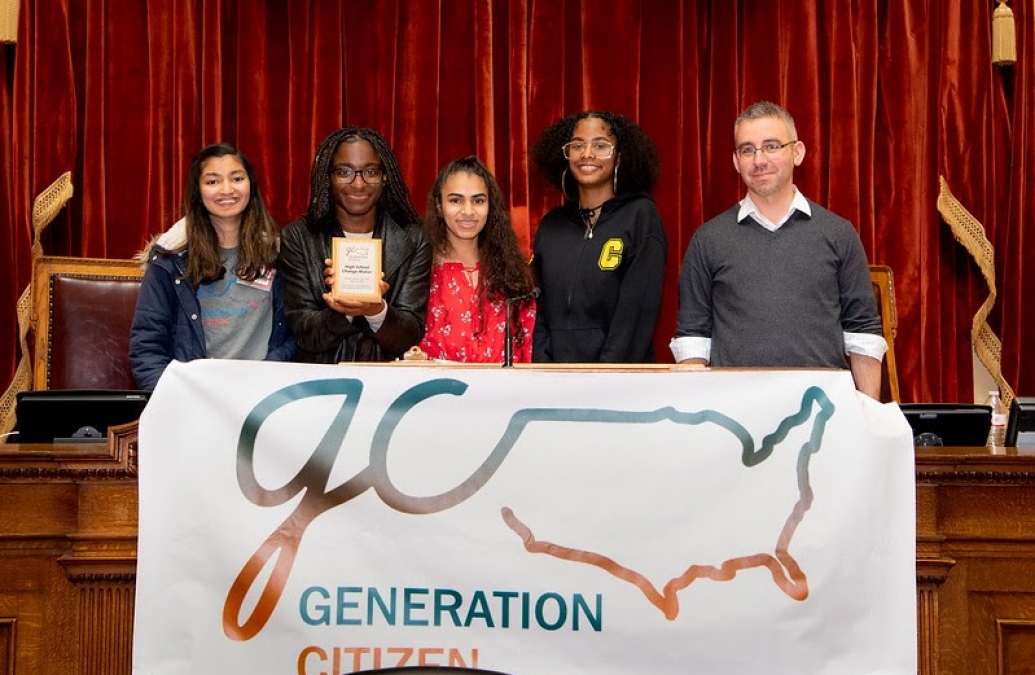2020 Census is Critical To Rhode Island’s Future

Conducted every decade, the United States Census collects data that will impact all communities, as it plays a critical role in the distribution of political power and nearly $1 trillion in federal funding. If the response rates are not reflective of the actual size of a state’s population (including off-campus college students), it can lead to severe consequences – a very real danger for Rhode Island! Recently, the Census Bureau projected that Rhode Island will lose its second congressional seat in 2022, as current estimates show that we are approximately 14,000 people short of the minimum necessary for 2 congressional seats (about 1% of its population). The loss of a congressional seat, funding, and votes is not inevitable, however... Kristina Pires, a program director for Generation Citizen states, “If there are accurate community counts, there should not be any concern about losing that seat.”
Generation Citizen is a nonprofit organization and a Swearer Center community partner that was established in 2008, when eight Brown University students began to teach action civics in four Providence school classrooms. Recognizing that young people who learn action civics are 40% more likely to engage civically when they turn 18, Generation Citizen taught students from across the country how to effectively participate as citizens in our democracy.
“Our voting turnouts in the 2016 elections are some of the lowest voter turnouts ever recorded in history; we can correlate low turnouts with not learning action civics,” Kristina noted. Now, the organization is expanding its focus to increase the census participation rate and educate others about its importance. They have created a document outlining census talking points and designed a census lesson plan for middle and high school students that educators across the country can use to teach their students.
“Students do not think that it matters to them as much, but the census makes a huge difference in the ways communities get impacted in the next 10 years,” Kristina emphasizes.
The 2020 Census asks 10 questions and only takes 10 minutes to fill out to bring long-term benefits and support for Rhode Island’s future. As of June 18, 2020, the total national response rate for the census this year was reported at 61.6%; however, when looking at the response rate for states, a different story is told. Minnesota holds a solid 71.1% response rate while Puerto Rico holds the smallest response rate at 20.7%. In comparison, Rhode Island currently ranks 29th in the nation with 59.5% of respondents. Do not worry, as you still have plenty of time to complete the census and play a huge role in determining what Rhode Island’s next 10 years will look like.
In early March, households received official Census Bureau mail with detailed information on how to respond to the 2020 census in one of three ways:
-
by mail (through a questionnaire mailed to your house),
-
by phone (by calling 844-330-2020), or
-
online (at mycensus2020.gov; 12 non-English languages available).
It is crucial that Brown University students who lived off-campus as of April 1, 2020 should respond, as the University is only responsible for counting students who lived on-campus in residence halls during that time.
Being able to complete the census successfully means to debunk any myths and be both aware and safe in doing so. Providing information for the census is required by law, so if your household has not completed it by August 11, a census taker will come to your home sometime prior to October 31 to help you do so. It is important to ensure that the census taker provides you with a photo ID with a U.S. Department of Commerce watermark before you answer any questions, as no other federal agency or government department – including U.S. Immigration and Customs Enforcement – are allowed to do so. Kristina makes clear that no information that you provide will be sent to immigration agencies or Law Enforcement or immigration agencies, and you will never be asked about your Social Security number – if you are, immediately stop filling out the Census.
Students can visit brown.edu/census at any time to learn more about the U.S. Census, its importance to Rhode Island, and how students living off-campus can ensure they are counted.
The U.S. Census Bureau is ending all counting efforts for the 2020 Census on Sept. 30, the bureau's director confirmed Monday, Aug 3.
